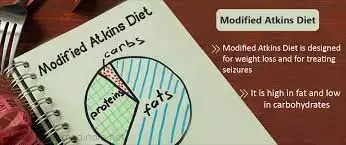- Home
- Medical news & Guidelines
- Anesthesiology
- Cardiology and CTVS
- Critical Care
- Dentistry
- Dermatology
- Diabetes and Endocrinology
- ENT
- Gastroenterology
- Medicine
- Nephrology
- Neurology
- Obstretics-Gynaecology
- Oncology
- Ophthalmology
- Orthopaedics
- Pediatrics-Neonatology
- Psychiatry
- Pulmonology
- Radiology
- Surgery
- Urology
- Laboratory Medicine
- Diet
- Nursing
- Paramedical
- Physiotherapy
- Health news
- Fact Check
- Bone Health Fact Check
- Brain Health Fact Check
- Cancer Related Fact Check
- Child Care Fact Check
- Dental and oral health fact check
- Diabetes and metabolic health fact check
- Diet and Nutrition Fact Check
- Eye and ENT Care Fact Check
- Fitness fact check
- Gut health fact check
- Heart health fact check
- Kidney health fact check
- Medical education fact check
- Men's health fact check
- Respiratory fact check
- Skin and hair care fact check
- Vaccine and Immunization fact check
- Women's health fact check
- AYUSH
- State News
- Andaman and Nicobar Islands
- Andhra Pradesh
- Arunachal Pradesh
- Assam
- Bihar
- Chandigarh
- Chattisgarh
- Dadra and Nagar Haveli
- Daman and Diu
- Delhi
- Goa
- Gujarat
- Haryana
- Himachal Pradesh
- Jammu & Kashmir
- Jharkhand
- Karnataka
- Kerala
- Ladakh
- Lakshadweep
- Madhya Pradesh
- Maharashtra
- Manipur
- Meghalaya
- Mizoram
- Nagaland
- Odisha
- Puducherry
- Punjab
- Rajasthan
- Sikkim
- Tamil Nadu
- Telangana
- Tripura
- Uttar Pradesh
- Uttrakhand
- West Bengal
- Medical Education
- Industry
Modified Atkins diet tied with increased risk of bone fractures in epilepsy patients: Study

Modified Atkins diet tied with increased risk of bone fractures in epilepsy patients, according to a recent study published in the Web del Grupo de Estudio de la Epilepsia
The aim of this study was to investigate whether the modified Atkins diet (MAD), a variant of the ketogenic diet, has an impact on bone- and calcium (Ca) metabolism.
Two groups of adult patients with pharmacoresistant epilepsy were investigated. One, the diet group (n = 53), was treated with MAD for 12 weeks, whereas the other, the reference group (n = 28), stayed on their habitual diet in the same period. All measurements were performed before and after the 12 weeks in both groups. We assessed bone health by measuring parathyroid hormone (PTH), Ca, 25-OH vitamin D (25-OH vit D), 1,25-OH vitamin D (1,25-OH vit D), phosphate, alkaline phosphatase (ALP), and the bone turnover markers procollagen type 1 N-terminal propeptide (P1NP) and C-terminal telopeptide collagen type 1 (CTX-1). In addition, we examined the changes of sex hormones (estradiol, testosterone, luteinizing hormone, follicle-stimulating hormone), sex hormone-binding globulin, and leptin.
Results:
After 12 weeks of MAD, we found a significant reduction in PTH, Ca, CTX-1, P1NP, 1,25-OH vit D, and leptin. There was a significant increase in 25-OH vit D. These changes were most pronounced among patients <37 years old, and in those patients with the highest body mass index (≥25.8 kg/m²), whereas sex and type of antiseizure medication had no impact on the results. For the reference group, the changes were nonsignificant for all the analyses. In addition, the changes in sex hormones were nonsignificant.
Thus, Twelve weeks of MAD treatment leads to significant changes in bone and Ca metabolism, with a possible negative effect on bone health as a result. A reduced level of leptin may be a triggering mechanism. The changes could be important for patients on MAD, and especially relevant for those patients who receive treatment with MAD at an early age before peak bone mass is reached.
Reference:
Substantial early changes in bone and calcium metabolism among adult pharmacoresistant epilepsy patients on a modified Atkins diet published in the Web del Grupo de Estudio de la Epilepsia
Dr. Shravani Dali has completed her BDS from Pravara institute of medical sciences, loni. Following which she extensively worked in the healthcare sector for 2+ years. She has been actively involved in writing blogs in field of health and wellness. Currently she is pursuing her Masters of public health-health administration from Tata institute of social sciences. She can be contacted at editorial@medicaldialogues.in.
Dr Kamal Kant Kohli-MBBS, DTCD- a chest specialist with more than 30 years of practice and a flair for writing clinical articles, Dr Kamal Kant Kohli joined Medical Dialogues as a Chief Editor of Medical News. Besides writing articles, as an editor, he proofreads and verifies all the medical content published on Medical Dialogues including those coming from journals, studies,medical conferences,guidelines etc. Email: drkohli@medicaldialogues.in. Contact no. 011-43720751


